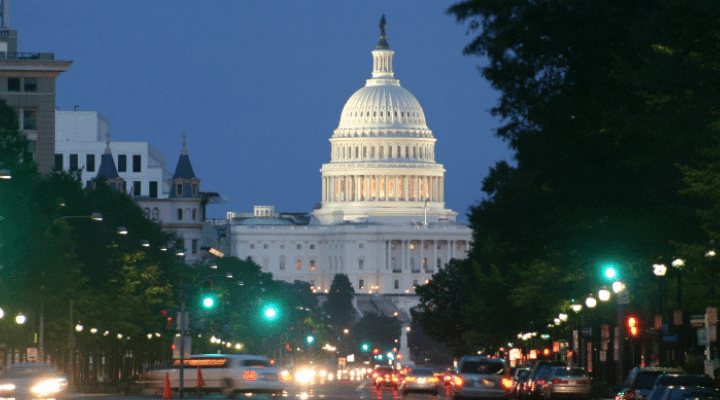Let’s say you don’t qualify for a security clearance. You shot a guy while on PCP, lied about it, quit paying your taxes, attempted to overthrow the government, and told your “well placed” friends in Saudi Arabia about security gaps you noticed while going through airport security last week. I have good news for you: there’s still a way for you to gain legal access to reams of classified material. All you have to do is get elected to Congress or become the presidential nominee of one of the two major political parties in the United States. (Criminal activity, it would seem, is no impediment to this task.) Members of Congress have access to everything—no background investigation required—and once securing their respective nominations, presidential candidates are given classified briefings by the Office of the Director of National Intelligence. (This policy began under Harry Truman, who assumed the presidency tabula rasa, knowing nothing about a little thing called the atomic bomb.)
Security clearances have played an oddly large role in the 2016 election season—perhaps because so many of our candidates would never survive a proper vetting, or manage to get through an SF-86 without lying on one block or another. (Sections 26, 27, and 28 alone would leave us with no president at all for the next four years.) Moreover, candidates seeking office at all levels are using their past or present clearances as a kind of Government-certification of non-criminality. A Colorado candidate for a seat in the U.S. Senate, for example, boasted, “I’ve had a top secret security clearance my entire adult life.” Clearances have also become a useful defense, as in the case of a candidate for the Pennsylvania general assembly. After being attacked by opponents, supporters noted that his “personal and professional histories and service were closely scrutinized for high security clearance.”
Clearance Fires and Political Gasoline
Meanwhile, the possible mishandling of classified material is now political gasoline to be splashed on opponents. There’s the email server that you’ve heard much about, but that’s only one (very large) scandal of many. The governor of South Carolina was accused of allowing a political advisor to sit in on sensitive briefings. The governor denied the allegation. A certain former first lady declared that while living in the White House she was “often provided” classified material despite having no clearance at the time. (She said this in her own defense.) One now-ex-candidate for president might have revealed secret CIA employment numbers. One former candidate called Edward Snowden a traitor and said he should be tried for treason. Another said that if Snowden went to prison, he should share a jail cell with James Clapper, the director of national intelligence.
Security clearances and secrecy also factor into the election as they relate to jobs. As ClearanceJobs readers know, security clearances can mean higher salaries. Communities therefore want to attract defense and intelligence-related jobs, and politicians who bring those jobs to their districts can count on reelection. On the subject of jobs, the Trans-Pacific Partnership Agreement, a 12-nation treaty with huge job implications, was classified and withheld from the public until the moment the White House announced its intention to sign it. Critics in Congress were unable to legally explain their objections in public. Consequently, current candidates for Congressional office are making that kind of politically-expedient secrecy a campaign issue.
Judgment = clearance?
Clearance-mania is not limited to the United States. The leading candidate for mayor of London asserted that he was “the only candidate for mayor with security top-level security-clearance to serve on the Queen’s Privy Council and attend counter-terror meetings,” saying: “Do you think I’d have been invited to weekly security meetings where there were MI5 and MI6, representatives from the police service and chaired by the Home Secretary if there were any concerns about me?”
In the end, the myriad insertions of security clearances into the 2016 election season come down to good judgement. Do the candidates have it, and do they deserve the faith of the public that our secrets are safe in their hands? This is undoubtedly related to the leaks, hacks, and cyberattacks of recent years. The same government that runs the National Security Agency and U.S. Cyber Command didn’t think to encrypt clearance-holders’ most sensitive, personal data imaginable. That now-notorious, FBI-proof iPhone in San Bernardino was better protected than your admissions of marital affairs and gambling problems, it would seem.
Secrecy is a powerful weapon and an awesome responsibility. At a minimum, perhaps we should expect the most powerful people in the world meet the same standards as a private in the Army. But, perhaps we expect too much.




